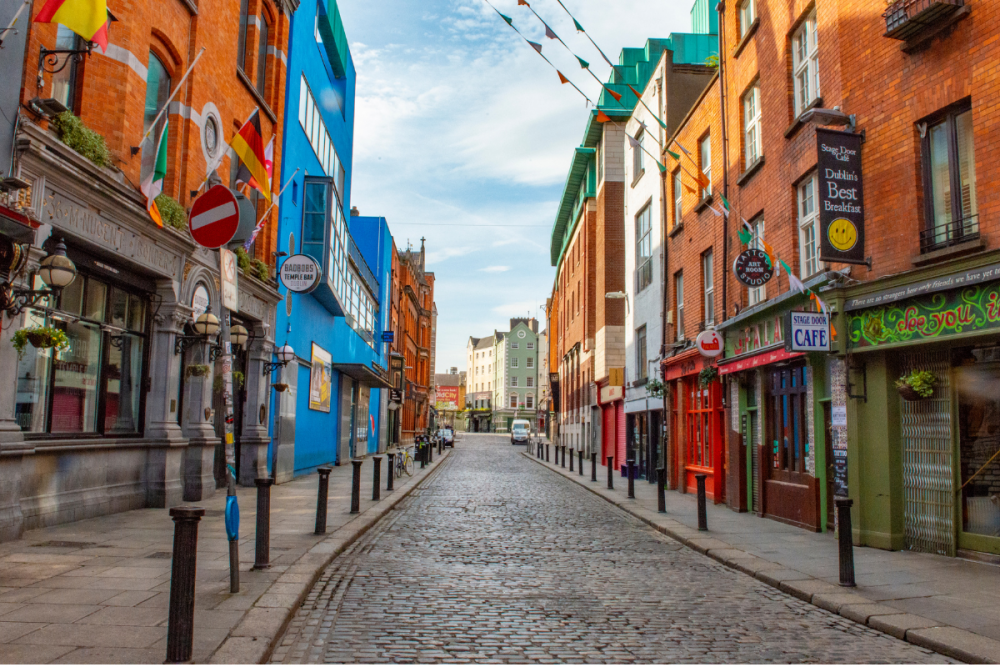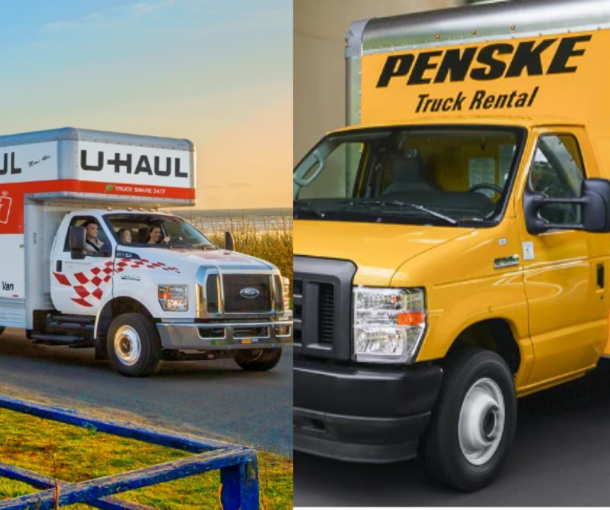What to Expect When Moving to Dublin

If you’re thinking about packing your bags and heading to the Emerald Isle, Dublin might just be the perfect place for you. Dublin, Ireland’s vibrant capital, has a rich history, friendly locals, and a thriving tech scene, so it’s no wonder why so many people are drawn to this charming city on the River Liffey.
Moving to a new country is a big deal, and there’s a lot to consider. From finding a place to live to navigating a new healthcare system, we’ve got you covered with our detailed guide on what to expect when moving to dublin.
The Power of Agoyu
Before we dive into what life in Dublin is like, let’s talk about how to make your move as smooth as possible. This is where Agoyu comes in – the game-changing app that’s revolutionizing the way people move internationally.
Agoyu uses cutting-edge AI technology to simplify every aspect of your move. Here’s how it can help:
- AI-Powered Inventory Scanning: Say goodbye to tedious list-making. Agoyu’s AI tech lets you quickly scan and catalog your belongings, ensuring nothing gets left behind.
- Instant Quotes: No more waiting around for moving companies to get back to you. Agoyu provides instant quotes from reputable international movers, letting you compare prices and services at a glance.
- Seamless Booking: Found the perfect mover? Book them directly through the app. It’s that simple.
- Customizable Moving Plans: Whether you’re bringing a studio apartment’s worth of stuff or a whole house, Agoyu lets you tailor your moving services to fit your needs and budget.
- Real-Time Tracking: Keep tabs on your belongings every step of the way, from packing to delivery at your new Dublin home.
By using Agoyu, you can focus on the excitement of your Dublin adventure, rather than stressing about the logistics of your move.
What Is Dublin Like?
Picture cobblestone streets lined with colorful Georgian doors, cozy pubs filled with the sound of traditional Irish music, and friendly locals always ready for a chat. That’s Dublin in a nutshell, but there’s so much more to this city than just its stereotypical charms.
Dublin is a city that seamlessly blends its rich history with a modern, cosmopolitan vibe. It’s where you can explore ancient castles in the morning, work at a cutting-edge tech company in the afternoon, and enjoy world-class theater in the evening.
Dublin is home to about 1.4 million people in its greater area, and it’s a relatively small capital city by global standards. This gives it a more intimate feel than some other European capitals. You’ll find it easy to get around and quick to feel at home.
The city is known for its literary heritage (it’s a UNESCO City of Literature), its vibrant music scene, and, of course, its famous black stout. But it’s also becoming increasingly known for its booming tech industry, with many major companies setting up their European headquarters here.
Understanding Dublin’s Neighborhoods
Dublin is divided into numerous neighborhoods, each with its own unique character. Here’s a breakdown of some popular areas to consider when moving to Dublin:
City Centre
The heart of Dublin, packed with historic sites, shops, and restaurants. It’s bustling and lively, perfect if you want to be in the middle of the action. You’ll find iconic spots like Trinity College and Grafton Street here.
Temple Bar
Temple Bar is known for its nightlife and tourist attractions. It’s colorful and vibrant, but can be noisy and expensive to live in. While it’s great for a night out, you might want to think twice before renting here if you value your sleep.
Ballsbridge
Ballsbridge is an upscale area that is popular with those who moved from the US to Ireland. It’s quieter than the city center but still close to everything. It’s also home to many embassies and the Aviva Stadium, which offers a more refined Dublin experience.
Ranelagh and Rathmines
These neighboring areas are popular with young professionals. They offer a good balance of residential calm and urban amenities. You’ll find plenty of trendy cafes, restaurants, and boutiques here.
Docklands
This is Dublin’s modern business district, and home to many tech companies. It’s sleek and contemporary, and has lots of new apartment buildings. If you work in tech or finance, this might be the perfect spot for you.
Howth
Howth is a seaside village that’s technically part of Dublin. It’s perfect if you want a more relaxed, coastal lifestyle while still being close to the city. This is great for seafood lovers and those who enjoy scenic cliff walks.
Need Movers? Your Move, Your Choice

Instant Exact Cost for Your Specific Move
Agoyu’s AI technology give you quick, precise estimates. Scan your room, receive instant quotes from multiple movers, and confidently select the best option for you.
STEP 1 OF 3
STEP 2 OF 3
or Have a Top Mover Call Me Now!
Do it the old fashion way! A top mover will call you to provide an instant quote over the phone or at your house!
Cost of Living in Dublin
To be honest, living in Dublin isn’t cheap. In fact, it’s one of the more expensive cities in Europe. But with some smart planning, it’s totally manageable. Here’s a rough breakdown of some common expenses:
- Rent: Expect to pay around €1,500-€2,000 per month for a one-bedroom apartment in the city center.
- Transportation: A monthly public transport pass costs about €140.
- Groceries: Budget around €200-€300 per month for a single person.
- Eating Out: A meal at an inexpensive restaurant is about €15-€20.
- Utilities: For a small apartment, budget about €100-€150 per month for electricity, heating, and water.
- Internet: High-speed internet will cost you around €40-€60 per month.
Keep in mind, salaries in Dublin tend to be higher to offset the cost of living. As of 2024, the minimum wage in Ireland is €12.70 per hour. However, many professional jobs, especially in tech and finance, offer significantly higher salaries.
Navigating the Housing Market
Finding a place to live in Dublin can be challenging, especially if you’re not familiar with the local real estate market. Here are some tips to help you navigate:
Start Your Search Early
Dublin’s housing market moves quickly, especially in popular areas. Start looking as soon as you can. Websites like Daft.ie and Rent.ie are good places to start your search.
Consider Using a Letting Agent
While it comes with a fee, a good letting agent can be invaluable in navigating the market and dealing with paperwork. They often have access to properties before they’re listed publicly.
Be Prepared for Competition
The rental market in Dublin is competitive. Be ready to view properties and make decisions quickly. Having your documents (proof of income, references, etc.) ready can give you an edge.
Understand the Costs
In addition to rent, you may need to pay a deposit (usually one month’s rent) and possibly letting agent fees. To try to save money when moving, factor these costs into your budget. Also, be prepared for most landlords to ask for both first month’s rent and a security deposit upfront.
Finding a Job
Dublin’s job market is strong, with opportunities across various sectors. Some of the biggest industries include:
- Technology (Dublin is home to many tech giants like Google, Facebook, and LinkedIn)
- Financial Services
- Pharmaceuticals
- Tourism and Hospitality
If you are not moving for your job and need to start your job hunt, check out popular Irish job sites like IrishJobs.ie, Indeed Ireland, and LinkedIn. Networking is also huge in Dublin, so don’t be shy about reaching out to people in your industry.
One thing to note: you’ll need the right visa to work in Ireland. If you’re from the EU/EEA or Switzerland, you have the right to work in Ireland without a visa. If you’re from outside these areas, you’ll likely need a work permit.
Transportation
Getting around Dublin is generally easy, thanks to its excellent public transport system. Here’s what you need to know:
- Dublin Bus: Extensive bus routes cover the city and suburbs.
- Luas: Dublin’s light rail system has two lines crossing the city.
- DART: This suburban rail service is great for getting to coastal areas.
- Cycling: Dublin is becoming increasingly bike-friendly, with many dedicated cycle lanes.
To use public transport, you’ll need a Leap card. It’s a smart card that you can load with credit and use across all forms of public transport.
If you’re planning to drive in Dublin, be prepared for traffic and limited parking, especially in the city center. Many Dubliners find it easier to rely on public transport for their daily commute.
Healthcare
Ireland has a mixed public-private healthcare system. If you’re a resident, you’ll have access to public healthcare services, which are either free or subsidized depending on your income.
However, many people in Dublin choose to have private health insurance for quicker access to services and more choice in healthcare providers. Some popular health insurance providers in Ireland include VHI, Laya Healthcare, and Irish Life Health.
Dublin is home to several excellent hospitals, including St. James’s Hospital, the Mater Misericordiae University Hospital, and St. Vincent’s University Hospital.
Education
If you’re moving in Dublin with kids, or planning to study yourself, you’ll be happy to know that Dublin offers excellent educational opportunities.
For primary and secondary education, you can choose between public schools (free for residents) and private schools. Some of the top-rated schools include St. Andrew’s College, Blackrock College, and The High School.
Dublin is also home to world-renowned universities, including:
- Trinity College Dublin
- University College Dublin (UCD)
- Dublin City University (DCU)
- Technological University Dublin
These institutions offer a wide range of undergraduate and postgraduate programs, attracting students from all over the world.
Things to Do
You’ll never be short of things to do in Dublin. Here are just a few ideas to get you started:
- Explore History: Visit Dublin Castle, Kilmainham Gaol, or the ancient Book of Kells at Trinity College.
- Enjoy Nature: Stroll through Phoenix Park (one of the largest urban parks in Europe) or hike in the nearby Dublin Mountains.
- Experience Culture: Check out the National Museum of Ireland, the Irish Museum of Modern Art, or catch a show at the Abbey Theatre.
- Taste Local Flavors: Tour the Guinness Storehouse, visit the Jameson Distillery, or explore the city’s thriving food scene.
- Day Trips: Dublin is a great base for exploring other parts of Ireland. Places like Howth, Bray, and Glendalough are just a short trip away.
Climate and Weather
Dublin’s climate is mild and temperate, but it can be unpredictable. Summers are cool with average highs around 20°C (68°F), while winters are mild with temperatures rarely dropping below freezing.
Rain is common throughout the year, so pack a good raincoat. However, the changeable weather gives Dublin its famous lush, green landscapes and often provides the opportunity to experience “four seasons in one day.”
Final Thoughts
Moving to Dublin is an exciting adventure that blends history, culture, and modern city living. While challenges like the cost of living and competitive housing market exist, the rewards of living in this vibrant, friendly city are immeasurable.
As you prepare for your move to Dublin, remember that Agoyu can help you find the right moving company and streamline your relocation process. With the right preparation and a positive attitude, you’ll soon feel right at home in Dublin.


